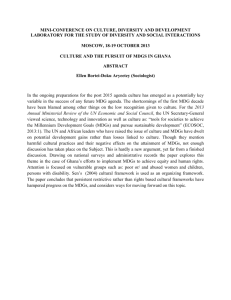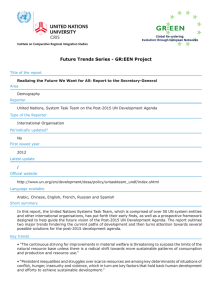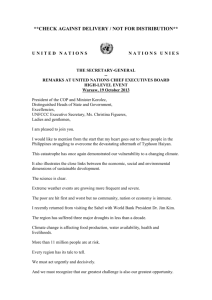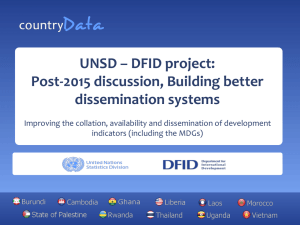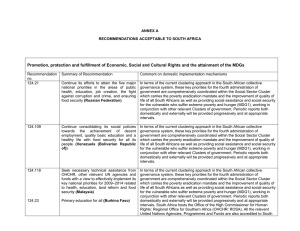Remarks by ECA Executive Secretary Abdoulie Janneh at MDG 2011 Report launch
advertisement
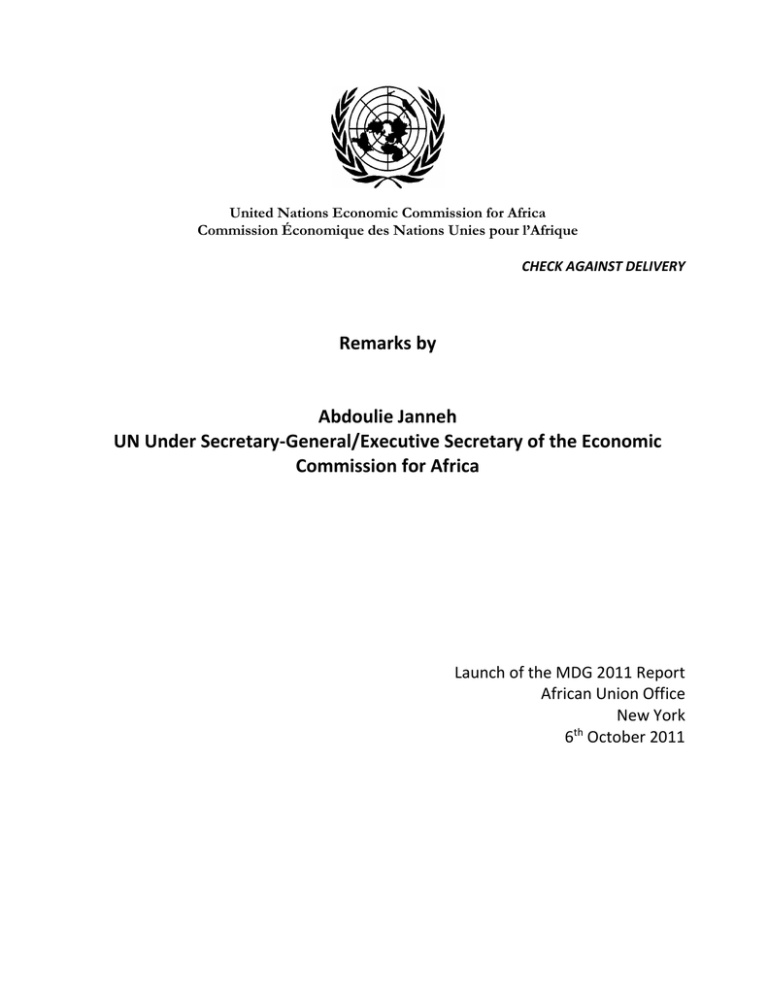
United Nations Economic Commission for Africa Commission Économique des Nations Unies pour l’Afrique CHECK AGAINST DELIVERY Remarks by Abdoulie Janneh UN Under Secretary-General/Executive Secretary of the Economic Commission for Africa Launch of the MDG 2011 Report African Union Office New York th 6 October 2011 Let me, from the onset, thank the Chairman of the African Group, my brother, Ambassador Macharia Kamau for agreeing to moderate this launch. I also want to thank our partners – the African Union, African Development Bank and UNDP, for collaborating on this important project. The MDG 2011 report provides a rigorous assessment of progress in Africa toward the achievement of the MDGs. It serves as a basis for policy discussion, peer learning, and advocacy. It also provides the impetus for policy decisions and actions by Africa’s highest political organs and for new strategies by member States. Excellencies Africa made some remarkable achievements on some targets of the MDGs such as: attaining gender parity, and even in some cases, exceeding enrollment targets in primary schools, enhancing women’s empowerment and their representation in national parliaments, as well as progress in the response against HIV, AIDS and tuberculosis. But the strong economic growth recorded before the global financial and debt crises have not resulted in commensurate poverty reduction on the continent. Maternal mortality continues to take a heavy toll on African women of childbearing age while African children and infants still have abnormally high mortality rates. It is clear, therefore, that despite the progress Africa has made, many critical challenges remain. This is why this report is important. It not only provides a uniquely African perspective on the region’s performance on the MDGs, but also serves as a policy document for promoting strong and coordinated action toward achieving the rest of the MDGs by 2015. But we must be forward-looking. We must begin the process of building consensus around the post-2015 development agenda, drawing on the views of a broad range of stakeholders. This is why ECA has been actively assessing Africa’s views on what should constitute the post-2015 development agenda. We are looking to member States to provide guidance on their development needs and priorities in order to formulate a unified African perspective on the post-2015 agenda. A large part of this will be ECA’s input to the upcoming UN report entitled “Beyond 2015: A Future UN Development Agenda” which is expected to provide the main elements for a global post-2015 development agenda from a regional perspective. In addition, in collaboration with the AU, we will host a regional workshop in November to articulate Africa’s position on the post-2015 MDG Agenda. Excellencies, as we review Africa’s progress over the past year toward the MDGs, let us not only focus on our modest successes and the daunting challenges we face in the future. Instead, let us begin to look beyond 2015 and draw lessons that can inform and affect the new development agenda- whatever it consists of. I thank you, Excellencies, for listening.


